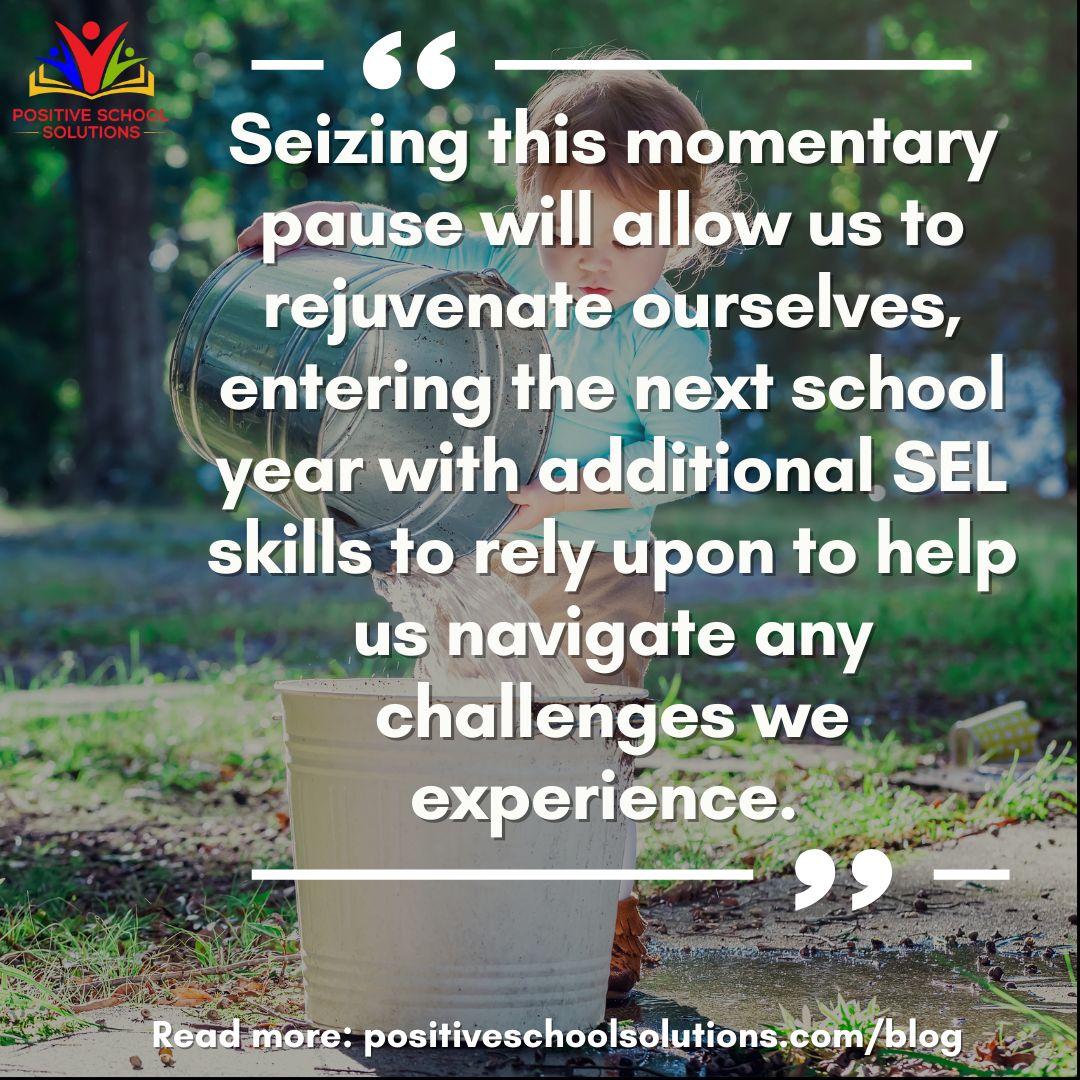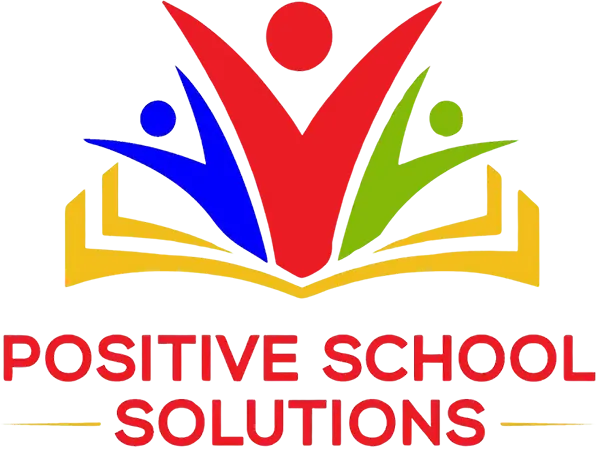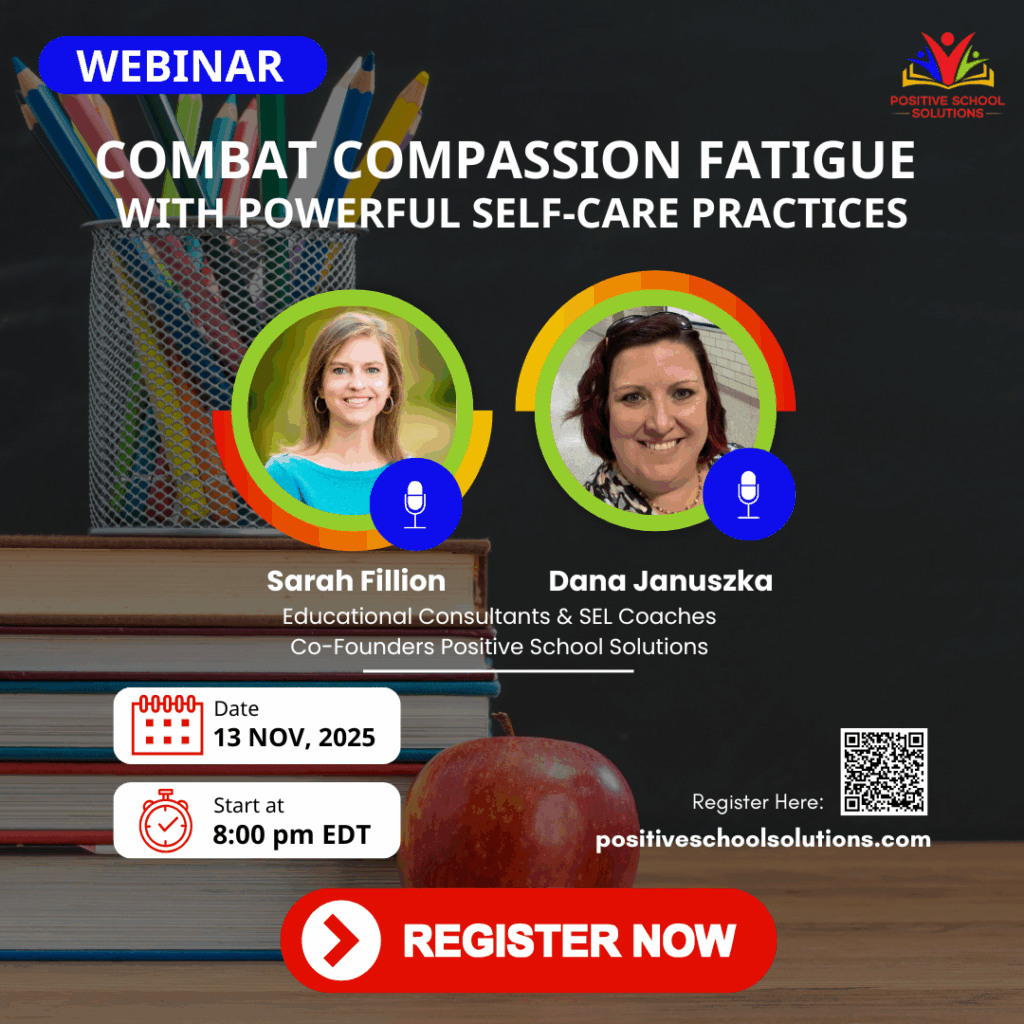For educators, the month of July typically holds the fewest responsibilities related to their profession. This short period is bookmarked by June, which welcomes the end of the school year, and August, which is full of preparation and the start of the new school year. July is that magical space between, which makes it a perfect time to rejuvenate and focus on SELf-care.

Rejuvenate, as defined in the Merriam-Webster dictionary, is “to make young or youthful again : give new vigor to” and one of the best ways we can do that is through SELf-care. By caring for ourselves, and specifically attending to our own social, emotional, and learning needs, we are able to replenish those wells within ourselves that we have poured from again and again for everyone else (students, their families, our families and friends, colleagues). Only once we replenish our wells can we serve others – we do not have an ever-running source, and therefore we must take the time to allow ourselves a chance to refill.
There are many ways to rejuvenate through self-care and I truly believe that everyone needs to discover what works best for themselves. Self-care, like most things in life, is not a one-size-fits-all and must be experimented with to figure out what truly works for you and leaves you feeling more youthful and full of vigor!
When we think about SELf-care, we can look at three broad categories in which the month of July serves to rejuvenate – wells that are tapped throughout the school year – to ensure they are ready to be tapped by a new group of learners coming next month. Social, Emotional, and Learning are all areas in which we can use July as the space between the ending and new beginning. By focusing on your needs in each of these categories, you are likely to develop SELf-care practices that can be maintained throughout the year, and in fact, help to rejuvenate you on a weekly, daily, or even hourly basis.
Social – First and foremost, you need to define what rejuvenates you more regarding social interactions. Are you a person that likes to have many people within your social circle that you can float freely around, with endless opportunities to connect abounding? Or, are you a person who prefers fewer connections that are deep, with hours spent together. Maybe you are a person who ideally prefers to spend the most amount of time with and by yourself, as that is what makes you feel recharged. There is no right or wrong social connectedness and identifying your needs makes it easier to employ a plan to rejuvenate yourself through this category.
Once you’ve figured out what level of social connectedness helps you feel your best, you can discover opportunities throughout the month of July to help you rejuvenate your connections. Whether it is expanding your social network to include more diverse individuals, setting aside time and effort to connect with important people, or expressing gratitude for individuals being in your life, you can reinforce and strengthen your connections during this space, ensuring you are ready for the social aspect in the next school year.
Some specific SELf-care practices you might consider this month:
-
- Planning an outing to a new place (restaurant, park, walking trail, etc.) with someone in your social circle.
-
- Practicing using boundaries to ensure you have an opportunity to see others and spend time recharging solo.
-
- Taking time to video, phone, or write a letter to someone to share how important they are in your life.
-
- Recalling a social situation and examining the influences of organizations and systems on behavior that was exhibited by those involved.
Emotional – Caring for ourselves emotionally means that we acknowledge and have healthy forums to process our feelings. Emotional well-being also means that we are able to function in society to meet the demands of everyday life and can bounce back from setbacks we experience. When we have a strong sense of emotional well-being, we are able to link our feelings, values, and thoughts together in a way that allows us to create a purposeful and meaningful life.
Oftentimes throughout a year (school or calendar) there are times that we must suppress our feelings about a specific situation because our time, energy, and emotions are in high demand elsewhere. Using this time, where we are free from last year’s school year and not yet bound to the upcoming school year, to explore unprocessed emotions can be cathartic and allow us to rejuvenate through expressing those feelings. Through taking time to rejuvenate ourselves emotionally, we are better equipped to positively influence our own and others behavior when needed in the future.
Specific SELf-care practices to enhance emotional well-being:
-
- Creating a set of coping skills for dealing with external stress.
-
- Identifying your strengths, writing them down, and returning to the list daily to develop a healthy self-concept.
-
- Pausing when we feel a strong emotion to name the feeling and connect it to our values and thoughts to understand, make sense of and deal with the emotion in a healthy and productive way.
-
- Practicing a growth mindset through seeing the positive in every situation or pushing ourselves to increase performance through effort on a challenging task.
Learning – During the school year, we learn so much as educators. From refining our practices to learning about the students and their families in our learning communities, we are constantly gaining new information and immediately implementing it. Learning is a powerful process and, when deeply submersed in one topic, can be overwhelming. A strong intellectual well-being requires that we have a diversification of what we are learning about and that we provide our brains (and bodies) with appropriate rest to convert the acquired knowledge into actions.
Using July as a time to increase our intellectual well-being provides us with an opportunity to be creative and experience mental stimulation in new realms. We can be curious and allow our curiosity to steer our new acquisition of knowledge, or we can explore topics that are inline with our values. Regardless of the topic, attending to our intellectual well-being requires a commitment to lifelong learning – modeling exactly what we want our students to embrace.
Specific SELf-care practices to enhance intellectual well-being:
-
- Learning a new form of mental stimulation through puzzles including jigsaw, crosswords, or Sudoku.
-
- Exploring solutions to social problems and researching organizations that will allow you to engage through activities.
-
- Stretching yourself to learn a new form of art, language, or music.
-
- Increasing critical-thinking skills through strategy based board games.
SELf-care is a practice, meaning that we must pay attention to it daily. There will be some days that our practice is good and others where we see we have a lot of room for improvement. The important thing is to commit to practicing SELf-care daily. While we have this space between school years, the month of July is perfect for us to practice SELf-care and develop the habit of practicing daily. Through repeated effort, creating reminders, and being kind to ourselves, we’ll identify what forms of SELf-care will support us best when we move back into the packed days of school and personal life competing for our attention. Seizing this momentary pause will allow us to rejuvenate ourselves, entering the next school year with additional SEL skills to rely upon to help us navigate any challenges we experience and pass on to those in our learning communities.
Written by Sarah Fillion & Dana Januszka 2021

